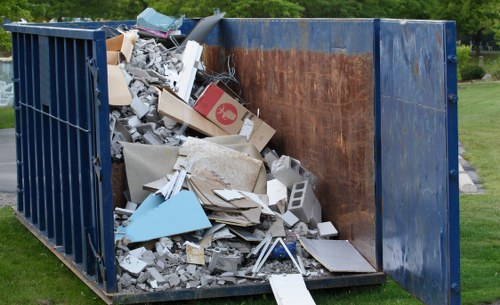Recycled London: A Sustainable Transformation

Recycled London is at the forefront of urban sustainability, implementing innovative recycling programs that transform the city's waste management system. As the capital grows, so does its commitment to reducing its environmental footprint through comprehensive recycling initiatives.
The concept of Recycled London encompasses various aspects, from residential recycling efforts to large-scale industrial waste management. By promoting recycling at all levels, London aims to set an example for other major cities worldwide.
One of the key elements of Recycled London is public education. Informing residents about the importance of recycling and how to properly segregate waste is crucial for the success of any recycling program.
Innovative technologies play a significant role in Recycled London's strategy. Advanced sorting facilities and waste-to-energy plants help ensure that recyclable materials are efficiently processed and repurposed.
Community involvement is another cornerstone of Recycled London. Local organizations and volunteer groups work alongside the city council to promote recycling initiatives and host events that encourage sustainable practices.
The economic benefits of Recycled London are evident. Recycling not only reduces landfill use but also creates jobs in the recycling and manufacturing sectors, contributing to the city's economic growth.

Recycled London has implemented a comprehensive recycling system that includes curbside pickup, drop-off centers, and specialized recycling facilities for items like electronics and hazardous waste.
Building green infrastructure is a priority for Recycled London. The city invests in sustainable buildings and public spaces that utilize recycled materials, promoting a greener urban environment.
Transportation is another focus area for Recycled London. By encouraging the use of public transport, cycling, and walking, the city reduces emissions and supports its recycling goals by minimizing waste generated from transportation.

Educational institutions in Recycled London are integral to fostering a culture of sustainability. Schools and universities incorporate recycling programs and sustainability studies into their curricula, preparing the next generation to continue the city's environmental efforts.
Public policies and regulations support Recycled London's initiatives. Stricter waste management laws and incentives for recycling businesses encourage compliance and innovation in the recycling industry.
The collaboration between government, businesses, and citizens is essential for the success of Recycled London. By working together, these stakeholders can achieve common goals and drive the city towards a more sustainable future.

Recycled London has become a model for urban sustainability, demonstrating that with the right strategies and community involvement, cities can effectively manage their waste and reduce their environmental impact.
Future plans for Recycled London include expanding recycling facilities, investing in new technologies, and continuing to engage the community in sustainability efforts.
In conclusion, Recycled London showcases how a major city can embrace recycling and sustainability to create a cleaner, greener, and more prosperous urban environment.








